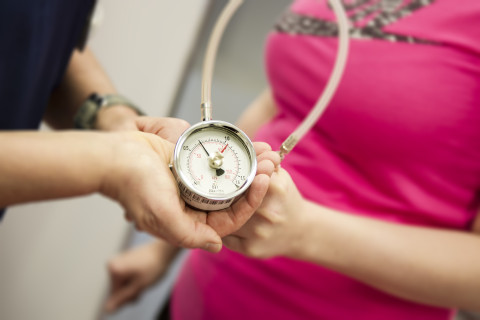The European FitBack research project has provided up-to-date fitness reference values for children 6–18 years of age, as well as a web-based, open-access platform allowing an automatic and interactive interpretation of paediatric fitness test results. Nearly 8 million fitness test results from 34 countries were used to provide the new sex- and age-specific reference values as well as country rankings – with Finland in the top five in both aerobic fitness and muscle strength. The Physical Activity and Nutrition in Children (PANIC) study ongoing at the University of Eastern Finland contributed to the work.
The FitBack project was funded by the European Commission, and the results were published in the British Journal of Sports Medicine.
Physical fitness is a powerful marker of health in children and adolescents. Cardiorespiratory fitness and muscular strength are considered to be the main health-related fitness components. Fitness in youth has been linked to both physical and mental health, and to academic performance. In many countries, fitness testing for children and adolescents is carried out as part of the school curriculum or in health care. However, a variety of tests have been used, making it difficult to compare fitness data across Europe.
To standardise fitness testing in Europe, a previous project proposed an evidence-based selection of fitness tests with the highest validity, reliability and relation to health, i.e., the so-called ALPHA fitness test battery. The test battery recommends using the 20 m shuttle run test for assessing cardiorespiratory fitness, the handgrip strength test and the standing long jump test for assessing muscular strength and power, and BMI and waist circumference as indicators of total and central obesity, respectively. The FitBack project has built on this work by widening the age demographic to cover all school ages from 6 to 18 for the first time. The consortium gathered the largest and most recent datasets in pediatric fitness across Europe to date.
A major goal of the FitBack project was to implement pediatric fitness monitoring across Europe as an educational tool for physical literacy. A web-based, open-access and multilanguage fitness platform was developed, which allows the results of fitness testing to be automatically and interactively interpreted based on sex-specific and age-specific reference values and is supported by user-friendly visual feedback and tips for improvement.
The FitBack platform offers physical education teachers an easy-to-use tool for interpreting fitness test results. Countries out of Europe could use this tool as well until they develop their own country or continent specific platforms. The reference values can help to identify young individuals with very low fitness levels indicative of poorer health, who should be particularly targeted for physical activity interventions. From a sports perspective, the reference values can help identify young individuals talented in specific fitness components. The platform is freely available online at https://www.fitbackeurope.eu/en-us/
In addition, country rankings were provided for each fitness test. The top 5 most aerobically fit countries were Iceland, Norway, Slovenia, Denmark and Finland, and the top 5 physically strong countries were Denmark, Czech Republic, the Netherlands, Slovenia and Finland.
One of the 106 datasets included in the study was from the Physical Activity and Nutrition in Children (PANIC) study led by Professor Timo Lakka at the Institute of Biomedicine, University of Eastern Finland. PANIC is an ongoing controlled physical activity and dietary intervention study in a large population sample of children followed retrospectively since pregnancy and prospectively until adolescence and finally until adulthood. The PANIC study has been supported by grants from the Ministry of Education and Culture of Finland, Ministry of Social Affairs and Health of Finland, the Academy of Finland, the Social Insurance Institution of Finland, the Research Committee of the Kuopio University Hospital Catchment Area (State Research Funding), Finnish Cultural Foundation, Finnish Innovation Fund Sitra, Foundation for Paediatric Research, Juho Vainio Foundation, Diabetes Research Foundation in Finland, Finnish Foundation for Cardiovascular Research, Yrjö Jahnsson Foundation, Paavo Nurmi Foundation, and the city of Kuopio.
For further information, please contact:
Professor Timo Lakka, https://uefconnect.uef.fi/en/person/timo.lakka/
Research article:
Ortega FB, Leskošek B, Blagus R the FitBack, HELENA and IDEFICS consortia, et al. European fitness landscape for children and adolescents: updated reference values, fitness maps and country rankings based on nearly 8 million test results from 34 countries gathered by the FitBack network. British Journal of Sports Medicine 2023;57:299-310.
Blog post:
Gil-Cosano, Ortega FB and Jurak, G. An interactive, evidence-based, multilingual, and free-access platform for fitness testing and interpretation in children and adolescents. BJSM Blog, posted on 10 March, 2023. https://blogs.bmj.com/bjsm/2023/03/10/an-interactive-evidence-based-multilingual-and-free-access-platform-for-fitness-testing-and-interpretation-in-children-and-adolescents/
The Physical Activity and Nutrition in Children (PANIC) study https://www.panicstudy.fi
